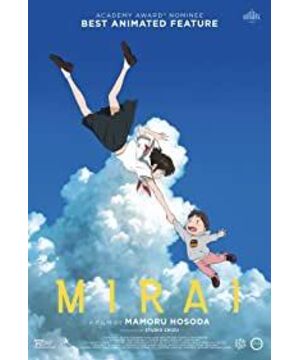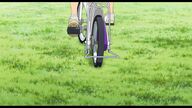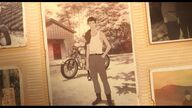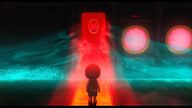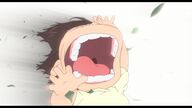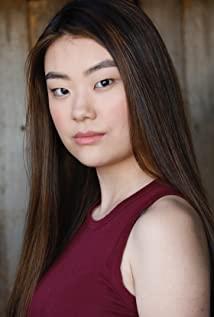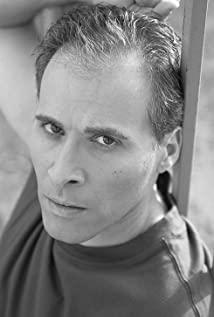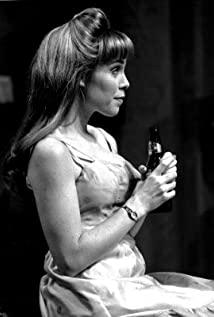To be honest, I have never been a fan of Mamoru Hosoda. In my opinion, he always uses the theatrical space to talk about petty subjects, such as youth, father and son, and mother's love. There are a lot of cliché scenes that animation series can't avoid, and he has written them into it. His previous high-scoring works: The Girl Who Leapt Through Time, Summer Wars, Children of the Wolf Rain and Snow. It's all about these silly stories.
Another interesting aspect of Hosoda Mori is that no matter what subject he is involved in, how many whimsical and bizarre events there are in the story, these attributes are all chips for him to warm people's hearts (sensation). Although there are werewolves in "Wolf Children", the story is still a theme of mother's love, and the growth and family in it can make people very moving. But when I think about it as an adult, I seem to think that this is unrealistic. If the story is slightly inclined, it will become a very dark story, but Morimoto Hosoda doesn't want this effect, so this is a very exciting story. Impressive, but a little unbearable movie. In my words: "tenderness" hides everything.
Because I have watched all the animations of Mamoru Hosoda, so after watching "The Future of the Future", I will feel that all his faults still exist, but such a low score seems unnecessary! Maybe my brain circuit is not the same as everyone's (I think "Son of the Monster" is better than his first three films), but in "Future of the Future", there are a few points that really impress me:
1. The protagonist of the film is a three-year-old boy.
I admire Hosoda Morigan in the movie with a three-year-old child as the protagonist, and I especially admire him for showing the state of a real three-year-old child. If a child at this stage has really seen it, it will be annoying. This kind of annoyance includes: talking without words, crying, and getting angry. Because I have seen it at a relative's house, I can fully understand how painful it is to take care of a child under the age of six. So when you're complaining about why there are such annoying protagonists in the movie, you should still think about what you think a three-year-old would look like?
Because of the setting of such a real family, it should be very understandable how this family is deeply mired in the quagmire. There are often scenes in movies where two children cry together. The biggest challenge for couples raising children is not to work together to solve a big problem, but to deal with small things all the time. It can make people feel broken (the child wakes up crying in the middle of the night, runs around the room to feed, whoever takes care of the child who cooks...all chores). Hosoda Mori may have really had a second child. He can express the little boy's emotions so delicately (even when it is unreasonable), which is really empathetic.
2. Little boys can travel between the past and the future.
Strictly speaking, I think the time and space described by Hosoda Mori in the movie may be a stream of consciousness. Because it doesn't give any entrance or exit, when to go out and come back. (Of course, it is also possible that it was not told.) In various short stories, the little boy always shuttled out suddenly, and returned to the family when it was time to come back. In fact, I don't really accept such a plot for granted. It's very similar to his previous works. Many fantasies are taken for granted, and they are moved in order to create emotion. This is a problem that Hosoda Mori has always had.
"The future of the future" has become a role in the story to explain the plot. I don't know why the movie is called this name, because after watching it, everyone may find out that this story has nothing to do with the future or the "future". .
But every time we shuttle, it is the story of this family. Fortunately, Mamoru Hosoda didn't write the story as the history of chicken soup for the soul of a young boy (actually, it looks a bit like it, but it's not so utilitarian), otherwise I wouldn't be able to eat this cauldron. We simply learned about his mother's childhood, the story of his great-grandfather driving a motorcycle, and the little boy knew the stories of this family before he was born. It's beautiful to think about it a little bit, and I've already jumped out of the story line here. I was just thinking, this little boy is really happy, because although he is so naughty and mischievous, he can instantly recognize himself from so many family moments, and he can also escape from real life. I am really envious. .
3. "The Future of the Future" tells a family story.
At first the girl was carried in the door, I actually thought the movie wanted to tell the story of this family. How husband and wife deal with two children and how they grow up in them. Later, I found myself thinking less, because there is an index of past and future stories, and the story tells the magnificent life of an ordinary family.
At the beginning and end of the movie, there are small framed photos, which actually implies that the story is to open up the old things and daily trivia in the family. For example, the father in the movie teaches his child to ride a bicycle. This is a trivial thing that can be recalled when growing up. The photo book that my mother often opens. At first, children disdain to see these, because they do not know the characters in the photos, and they cannot insert the words of adults. But when this character really stands in front of you and speaks to you, this memory becomes so clear, they in the child's heart, from a thin image, into a living person, deeply Branded on his heart, it has become a memory for him, which makes the family story so moving!
I can still remember what my parents did for me when I was a kid. Including my troubles not being able to go to cram school, eating beef balls for the first time, being carried up the stairs by my father, etc. Looking back on these little things now, it really is a bit like a movie. It's not that I have to talk about how powerful and educational a mother's love is, but these things are wonderful to think about, like a child being carried by his great-grandfather, driving a motorcycle through a small house in the country, and the child is hiding in the great-grandfather. Pregnancy, like the breeze blowing in front of you, is an indescribable beauty, a feeling that can be experienced no matter how many years later.
There’s a quote from the future in the movie: “If the great-grandfather hadn’t screamed to death, if the great-grandmother hadn’t been jogging, we wouldn’t have been able to connect.” It may seem sentimental at first, but we all know that it is Because of these little things, we can exist here. Our family is connected like a line. With so many magnificent history, we have this ordinary little family.
Parents are also asking each other when loading the car: "Have you become a good father?", "Have you become a good mother?" The family is still going on, and the father has learned to hold the child and assign In work and life, mothers also learn how to regulate their emotions. Everyone in the family continues to work step by step, learning and growing. Mamoru Hosoda covered the "tenderness" so gently, we should be embarrassed to look for the dark side again.
Of course, there are also many problems in the movie. For example, I don't like the description of the future station in it. It not only doesn't fit in with the atmosphere of the movie (a bit scary), but also has nothing to do with the plot. The only thing I can think of is that the director feels that the whole movie is relatively young, so he has to impose a scene of "master's handwriting", but unfortunately I think he has screwed up.
Since the big tree in front of the door can travel through the future, what is the explanation that the baby and the future girl can't be together when the dog turns into a human shape? Since the future self and the present self cannot be together, why can the boy and the future self appear in the same scene? These are the same as the great-grandfather rode a horse for the first half of the journey and turned into a motorcycle through the tunnel. Don't think about it, these loopholes are similar to Hosoda's previous work, and they can't stand the test at all. That's why I love Son of the Monsters...
Tucao returns to Tucao, because I am very touched by this family theme of Mamoru Hosoda, so I still like it. Since I can't stop Mamoru Hosoda from continuing to be promiscuous, I have to watch it one by one hahaha
View more about Mirai reviews


